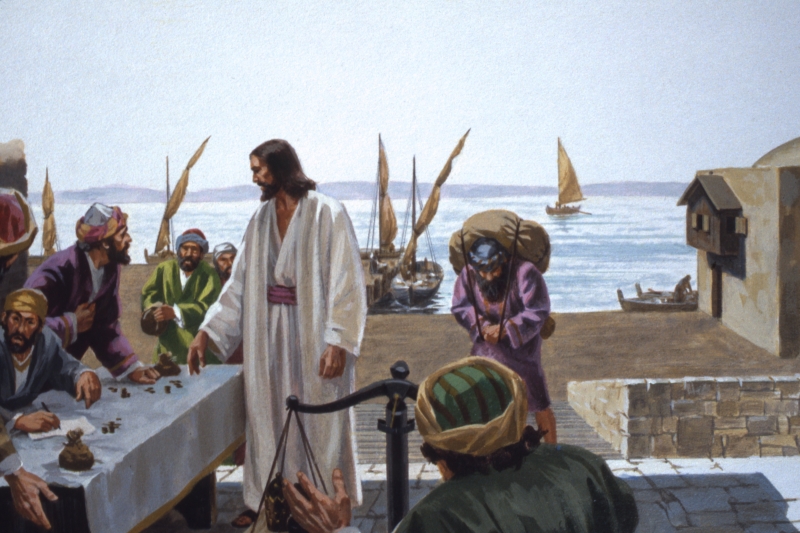The other Evangelists from respect to Matthew have not called him by his common name, but say here, Levi, for he had both names. Matthew himself, according to that Solomon says, 'The righteous man accuses himself,' calls himself both Matthew and Publican, to show the readers that none need despair of salvation who turn to better things, seeing Jesus change a Publican to an Apostle. Here Matthew shows the excellent power of Him that called him; while engaged in this dangerous office He rescued him from the midst of evil, as also Paul while he was yet mad against the Church. Jesus said to him, 'Follow me.' As you have seen the power of Him that calls, so learn the obedience of him that is called; Matthew neither refuses, nor requests to go home and inform his friends.
The Publicans were they who were engaged in public business, which seldom or never can be carried on without sin. And a beautiful omen of the future, that he that was to be an Apostle and doctor of the Gentiles, at his first conversion draws after him a great multitude of sinners to salvation, already performing by his example what He was shortly to perform by word.
Luke adds to repentance, which explains the sense; that none should suppose that sinners are loved by Christ because they are sinners; and this comparison of the sick shows what God means by calling sinners, as a physician does the sick to be saved from their iniquity as from a sickness: which is done by penitence. Jesus calls Himself a physician, because by a wonderful kind of medicine He was wounded for our iniquities that He might heal the wound of our sin. By the whole, He means those who seeking to establish their own righteousness have not submitted to the true righteousness of God. By the sick, He means those who, tied by the consciousness of their frailty, and seeing that they are not justified by the Law, submit themselves in penitence to the grace of God.
References:
Commentariorum In Evangelium Matthaei (St. Jerome)
Homily 30 on Matthew (St. John Chrysostom)
The Harmony of the Gospels, Book II, Ch. 27 (St. Augustine)
Commentariorum In Matthaeum (St. Rabanus Maurus)
Glossa Ordinaria
